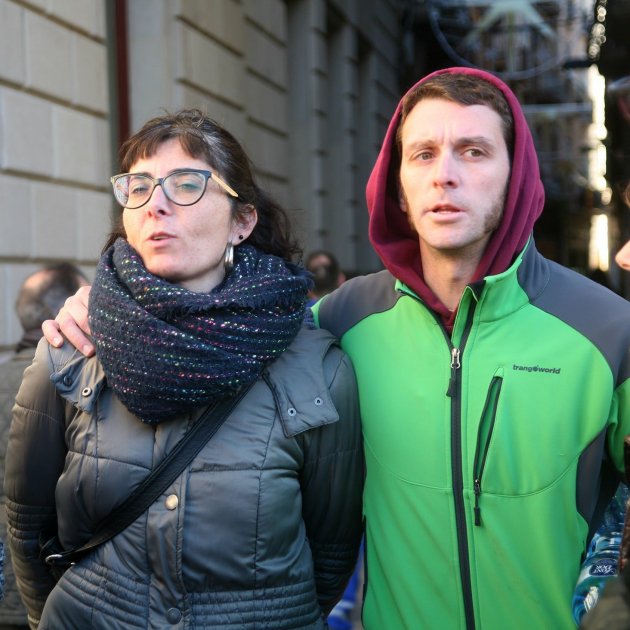End of the Christmas truce - if there even was one. A week ago, the ballot box victory of the pro-independence Catalans humiliated the government of Mariano Rajoy and the parties supporting the imposition of article 155, renewing the absolute majority in favour of the Catalan republic. A political nightmare scenario for the Spanish government and its partners to which they responded on Wednesday by renewing the pressure on the independence movement on all fronts: judicial, political - with a focus on the uncertain investiture of the new Catalan president - and economic.
The Catalan elections, called by the Spanish prime minister “to resolve” the Catalan question, have caused the Popular Party (PP) to be relegated to a testimonial role in Catalonia, with its worst result ever, winning 4 MPs in a parliament of 135; while Citizens (Cs), in spite of finishing as the leading force in both votes and seats, cannot forge an alternative government, and the third unionist party, the Socialists of the PSC, only managed to win one extra seat.
A complete fiasco which, far from prompting a reflection by the leaders of the unionist parties, has caused them to tighten the screws in their repression of the pro-independence forces. A fact which should sound a warning, especially to Carles Puigdemont and Oriol Junqueras, president and vice president respectively of the outgoing Catalan government, along with the other ministers and Catalan leaders imprisoned or in exile in Brussels - about their immediate procedural future.
If on Christmas Eve it was Spain's King Felipe who, in his traditional message, turned a deaf ear to Puigdemont's request that he rectify his previously-expressed extreme position on Catalonia, it now seems that the entire apparatus of the Spanish state has lined up again in the last few hours to keep the pressure on the independence movement after the renewed legitimacy it won at the ballot box.
For one, Spanish justice has resumed its arrests of politicians. In this case, two town councilors representing the left-wing CUP party in the city of Reus, Marta Llorens and Oriol Ciurana, have been arrested by the Catalan police for refusing to appear in relation to the referendum of October 1st.
Artadi i Rovira
In parallel, Spain's interior minister, Juan Ignacio Zoido, broadened the focus of possible new judicial actions to take aim at two MPs-elect, Elsa Artadi of Together for Catalonia (JxCAT) and Marta Rovira, of Catalan Republican Left (ERC) - the “strong women” of Puigdemont and Junqueras. The motive: their involvement in the process of confectioning their respective candidatures for these elections. Both Artadi and Rovira are considered as possible alternatives for leadership of their parties for parliamentary investiture if the procedural situation prevents the two list number ones, Puigdemont and Junqueras, from taking their expected roles.
The unionist parties are trying to heal their wounds constructing imaginary Catalonias on social media but it is not even clear that Cs candidate Inés Arrimadas could be elected president of the invented land of Tabarnia. Despite everything, the president of the Catalan employers association, Joquim Gay de Montellà, has encouraged the Cs leader to step forward, and try her luck at being invested Catalan president. But wishes are one thing and parliamentary arithmetic is another: Cs, the PSC and the PP have a total of only 57 seats, 11 fewer than they need to forge an alternative majority. Maybe for this reason, the Spanish government led by the PP, along with other pro-155 parties, have decided to continue playing their most devastating cards in what amounts to a scorched earth approach.
The economic front
On the economic front, Spain's treasury minister, Cristóbal Montoro, who anticipated the application of article 155 with his intervention in the Catalan government's finances, has broadened the measures of control over the Catalan public funds that he himself administers. In fact, the decision was taken the same day as the election.
And following the same line already taken with those deemed responsible for the unofficial independence consultation held by Catalonia in 2014, among them ex-president Artur Mas, who has had personal assets impounded, Spain's Court of Accounts has now been instructed to investigate the expenditure on Catalonia's representation abroad, the so-called “embassies” of the Diplocat network. A decision approved by the 155 block: PP, PSOE and Cs.
The 155 bullet
Given this panorama, the lifting of Madrid's direct rule measures under article 155 in the next few weeks seems a mirage. For what it is worth, the Catalan parliament's Diputació Permanent committee, which meets as part of the election process, decided yesterday to approve an appeal to Spain's Constitutional Court against the suspension of Catalan self-government under article 155. Meanwhile, the first contacts between the two pro-independence lists JxCat and ERC to agree on Parliament's new Presiding Board were just that: mere informal contacts.
Significantly, the spokesman for the Spanish Socialists (PSOE), José Luis Ábalos, clarified from Madrid that the socialists are in favour of not lengthening the suspension of self-government under article 155. However, he advised that 155 “does not have just a single bullet”. That is, once all the former taboos have been broken by its initial application, nothing prevents it from being reimposed. Extending the punishment. In fact, Rajoy connected the lifting of 155 with the formation of a new government in Catalonia, an event that right now seems as far away as the forests of Brussels and the wasteland of Estremera.
